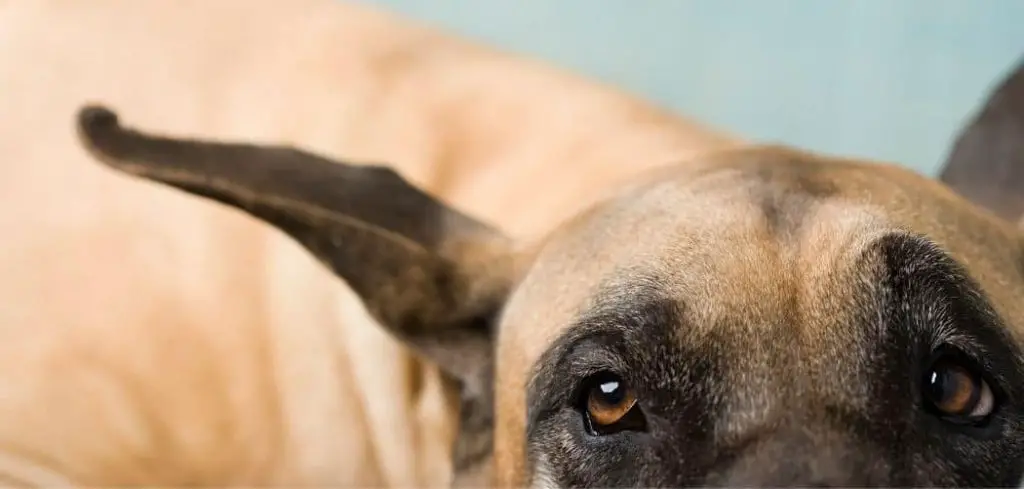If your dog is panting heavily and constantly begging for food, it can be confusing and worrisome. These two symptoms together might point to a range of underlying medical or behavioral issues.
We outline the likely reasons why your dog is panting and always hungery, what you can do at home, and when to seek veterinary help.
Dog Panting and Always Hungry — Why It Happens
Dogs who pant excessively and seem to have an insatiable appetite may be dealing with hormonal imbalances, medication side effects, or chronic conditions. Common causes include Cushing’s disease, diabetes, side effects from steroids, anxiety, or even poor nutrition.
Some dogs may also experience these symptoms due to pain, metabolic disorders, or digestive issues.

Dog Panting and Always Hungry: Common Causes
Cushing’s Disease
Cushing’s disease (hyperadrenocorticism) is one of the most common causes of panting and increased hunger in dogs.
This condition results from the overproduction of cortisol, a stress hormone, usually due to a tumor in the adrenal or pituitary gland.
Affected dogs often have an increased appetite, excessive thirst, and noticeable panting even when resting.
Owners may also see a pot-bellied appearance, thinning fur, and lethargy.
Without treatment, Cushing’s can lead to serious organ damage and reduced quality of life.
Diabetes Mellitus
Diabetes in dogs can cause both increased hunger and panting, especially if blood sugar levels are poorly controlled.
As the body struggles to use glucose for energy, dogs may become ravenous, drinking more water and urinating frequently.
Panting may result from dehydration or stress due to fluctuating blood sugar levels.
Other signs include sudden weight loss, cloudy eyes (cataracts), and fatigue.
This condition requires lifelong management, including insulin and diet control.
Read more: Dog Panting and Not Eating (What’s going on?)
Steroid Medications
If your dog is on steroids (like prednisone), panting and a spike in appetite are common side effects.
Steroids affect metabolism, leading to increased hunger and thirst, while also stimulating the respiratory system.
Panting can occur even in a cool room, and some dogs become food-obsessed during treatment.
While steroids are useful for managing inflammation, autoimmune issues, or allergies, their side effects should be monitored closely.
Consult your vet about dosage or alternative treatments if symptoms worsen.
Anxiety or Stress
Anxiety can cause panting in dogs, especially during episodes of restlessness or nervous behavior.
Some dogs respond to stress by engaging in food-seeking behaviors, eating rapidly or begging more than usual.
Changes in routine, loud noises, separation anxiety, or household tensions can trigger these symptoms.
Unlike medical causes, anxious dogs may appear otherwise healthy and energetic.
Behavioral support, environmental adjustments, and training can help alleviate symptoms.
Poor Nutrition or Diet Imbalance
If your dog’s diet is lacking essential nutrients or calories, they may remain hungry despite eating.
Some low-quality commercial diets or unbalanced homemade meals don’t provide enough fiber or protein, leading to hunger.
Panting can result from discomfort, gastrointestinal distress, or even overheating if the dog is overweight due to overfeeding.
A full nutritional evaluation with your vet can help determine if your dog’s food is meeting their needs.
Hyperthyroidism (Rare in Dogs)
Though rare, hyperthyroidism in dogs can cause increased metabolism, leading to panting and excessive hunger.
It typically results from a thyroid tumor and may also cause weight loss, restlessness, and high heart rate.
Because this condition is uncommon, it’s often overlooked, but it requires prompt treatment if diagnosed.
What to Do If Your Dog Is Panting and Always Hungry
If your dog seems hungrier than usual and is panting more often, begin by observing when and how these symptoms occur.
Keep a diary of when your dog eats, pants, drinks, or shows signs of stress. This information helps your vet identify patterns.
Evaluate your dog’s food quality and feeding schedule. Ensure the diet is appropriate for their age, size, and activity level.
Try feeding smaller meals more frequently throughout the day to keep your dog satisfied without overfeeding.
Reduce environmental stressors. Calming music, toys, enrichment activities, or pheromone diffusers can ease anxiety-related panting and food-seeking behavior.
If your dog is on medication, talk to your vet about side effects and whether dosage adjustments or alternatives are possible.
When to Call or Visit Your Vet
Some symptoms warrant immediate veterinary attention, especially when combined with excessive panting and hunger.
Contact your vet if your dog:
Loses or gains weight rapidly
Has a bloated or pot-bellied appearance
Drinks or urinates excessively
Shows changes in coat quality or skin condition
Becomes lethargic, confused, or disoriented
Vomits or has diarrhea frequently
Sudden behavioral changes or persistent panting should never be ignored, even if your dog seems otherwise normal.
Early diagnosis can make a significant difference in managing chronic conditions and preventing complications.
Read more: Dog Panting and Allergies (Explained)
Key Takeaway
Panting and always being hungry may seem like unrelated symptoms, but together they often point to underlying health issues.
Whether it’s Cushing’s disease, diabetes, medication side effects, or stress, it’s important to investigate the cause.
Support your dog with proper nutrition, monitor their symptoms, and don’t hesitate to contact your veterinarian if things don’t improve.
With attentive care and medical guidance, most dogs can find relief and get back to a calmer, more comfortable life.
